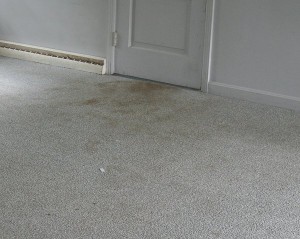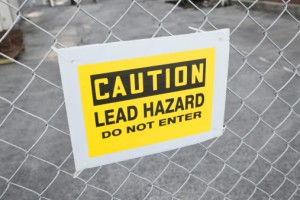Posted by Teresa on August 2, 2012 under Eviction, Landlord Tips, Tenant Credit Checks | 
 Experienced landlords know that being tough is an important part of their job descriptions. With the economy still suffering and unemployment still high, many prospective tenants’ credit scores have taken a beating. But should landlords take into consideration the difficult economic circumstances of many American families when deciding whether or not to approve a lease application?
Experienced landlords know that being tough is an important part of their job descriptions. With the economy still suffering and unemployment still high, many prospective tenants’ credit scores have taken a beating. But should landlords take into consideration the difficult economic circumstances of many American families when deciding whether or not to approve a lease application?
In other words, should landlords overlook lower credit scores or bankruptcy filings and try to help lease applicants?
Certainly, every situation is different. Many landlords will not budge on their credit requirements. Others look at the whole picture, and will pass a less-than-stellar credit score if the tenant has a steady paycheck that more than covers rent and other living expenses. Still others check prior evictions, and if there are none, then they will take a chance on the tenant.
And then there are the landlords who aren’t tough enough to say “no” to a prospective tenant with a poor credit history and no steady job. Whether they feel a sense of obligation or feel sorry for the tenant, they sign the lease and hope for the best. Often, they end up losing money, can’t get rid of the tenants and rack up thousands of dollars in eviction fees.
Trying to help people is noble, but it’s not a landlord’s job. A landlord’s job is to provide safe housing, to protect other tenants from potential harm, and to earn a profit from leasing property. You may hear sad stories of job loss, divorce, illness, death of loved ones and tough times. There is no doubt that it’s difficult to make a decent life for a family these days, when good jobs are hard to find.
Nobody wants to see a family out on the streets. But landlords have to be tough to protect themselves and their sizable investment. Checking tenant credit histories, conducting background checks, and sticking to your minimum qualifications will keep your rental property business strong and sustainable into the future. If you’re not tough enough, you may not have a future in the landlording business.
Posted by Teresa on July 13, 2012 under Landlord and Tenant FAQs | 
 Not everyone is destined to be a landlord. It’s a tough profession, and it takes a tough person to do it successfully.
Not everyone is destined to be a landlord. It’s a tough profession, and it takes a tough person to do it successfully.
If you agree with the statements below, you might not be cut out for owning and leasing rental property.
- It’s okay to rent out a property without requiring tenants to complete an application.
- I don’t have a problem with tenants allowing their friends and family members move in without my knowledge or permission.
- Background screening and tenant credit checks aren’t that important. I go by gut instinct.
- If a tenant has trouble paying rent, I’ll take some of it out of the security deposit.
- A handshake is better than a written lease.
- I always give tenants a grace period to pay the rent.
- If there are three roommates in a property, I’ll accept three rent checks.
- I’d feel bad telling someone they needed to leave my rental property.
- If I don’t like how someone looks, I won’t rent to him or her.
- I’ll go out of my way to make things work with a tenant.
- Even a bad tenant is better than a vacant rental.
- I’m not familiar with the housing codes or rental laws in my state.
These are just a few ways to get in trouble, lose money or fail at being a landlord. What can you experienced landlords out there add to the list?
Posted by Teresa on June 28, 2012 under Landlord Tips, Rents and Deposits | 
 When tenants move out, it’s standard practice to conduct a walk-through of the rental property, checking for damages. Then, all necessary repairs are made, with the cost typically taken out of the tenant’s security deposit. It’s generally understood that tenants are not responsible for any ordinary wear and tear—this is a cost of doing business, covered by the property owner.
When tenants move out, it’s standard practice to conduct a walk-through of the rental property, checking for damages. Then, all necessary repairs are made, with the cost typically taken out of the tenant’s security deposit. It’s generally understood that tenants are not responsible for any ordinary wear and tear—this is a cost of doing business, covered by the property owner.
The standard definition of “ordinary wear and tear” in most states is deterioration or damage to the property expected to occur with normal usage. However, it’s often a judgment call. What about crayon marks, carpet damages or nail holes?
Ordinary wear and tear generally applies to items like flooring, paint and woodwork. For example, carpeting has a set useful life. If carpet needs to be replaced after a tenant lives in your rental property for five years, that’s likely going to fall under “ordinary wear and tear.” However, a one-year tenant who damages brand-new carpet would be liable for those damages.
Minor indentations on walls are normal; crayon marks, nail holes and gouges are not. Cracks in old tile are normal; broken and chipped new tiles are beyond normal wear and tear. If a tenant breaks a refrigerator drawer or the knobs on the stove, it’s considered damage, not normal wear and tear. Damage from a pet chewing on baseboards is certainly not normal.
Tenants must also return the property to the condition it was in when they moved in. If a tenant leaves dirt and grime behind, the landlord may have the rental unit cleaned and deduct the fee from the security deposit.
Be sure to be thorough and specific when noting damages on your move-out inspection sheet. Take photos or videos and send tenants a detailed list of any charges. Keep all receipts for cleaning, repairs or replacement.
Posted by Teresa on May 10, 2012 under Legal | 
 Under Title X, or the Residential Lead-Based paint Hazard Reduction Act, landlords are required to disclose any known lead-based paint or hazards in their rental property before signing or renewing a lease with a tenant.
Under Title X, or the Residential Lead-Based paint Hazard Reduction Act, landlords are required to disclose any known lead-based paint or hazards in their rental property before signing or renewing a lease with a tenant.
The law was enacted in 1992 to reduce the health threats of lead-based paint to adults and children. When lead-based paint peels, chips or is sanded, it can lead to lead poisoning, which affects nearly every system in the body. Infants and young children are particularly susceptible. Lead poisoning can lead to behavior problems, impaired growth and reading and learning problems. The Centers for Disease Control (CDC) estimates 250,000 U.S. children ages one through five have elevated blood lead levels.
Adults with lead poisoning often have high blood pressure, memory problems, joint and muscle pain, nerve disorders, and problems during pregnancy.
It’s clear that following the law is important, and the right thing for landlords to do. Landlords are required to tell prospective tenants about the location and condition of lead-based paint in housing built before 1978. They are also required to provide information, such as pamphlets provided by the CDC, about lead paint hazards and how to prevent exposure. Tenants may then make an informed decision about renting or not.
Recently, a landlord in Bridgeport Conn. was found to have rented apartments to families on seven different occasions without making the necessary disclosures. The landlord was charged with:
- Failing to give tenants the required information pamphlets.
- Failing to include proper warning statements in the leases.
- Failing to disclose any known lead-based paint or paint hazards.
- Failing to provide records or reports on previous lead paint enforcement actions or violations.
The landlord is now facing a federal fine of up to $127,000 for his carelessness.
In Indianapolis, Ind., the chipping lead-based paint in a rental home led to serious health issues for a three-year-old. The child came down with a fever, stopped talking, slept constantly and could not eat. A medical exam revealed lead poisoning.
In 2007, the county health department tested the home and found hazardous levels of lead in the doors, door frames, window frames and other areas. Inspectors recommended what needed to be done to bring the home into compliance. The owner of the property at that time was First National Bank of America. The home was tested again in 2009, and a letter was sent to the new owner, a private landlord, outlining that all of the lead hazards had not been corrected.
The tenant started renting the home a year ago, and asserts she knew nothing of the dangers. Doctors told her to vacate the house as soon as possible. She is now in the process of moving, but fears the home will be rented to another unsuspecting tenant. The landlord of this property could face the same charges and fines as the Bridgeport landlord.
Lead poisoning is serious—and so are the laws landlords are required to follow to keep their tenants safe. Don’t make the same mistakes as these two landlords. Protect your tenants and yourself by following Title X to the letter.
Posted by Teresa on April 28, 2012 under Tenant Credit Checks | 
 Most landlords and property managers screen prospective tenants carefully. But if you’re new to landlording, you may be wondering if it’s necessary or worth the trouble.
Most landlords and property managers screen prospective tenants carefully. But if you’re new to landlording, you may be wondering if it’s necessary or worth the trouble.
The answer is yes! Running credit checks on every lease applicant will give you the peace of mind of knowing your business and livelihood are protected. Here are the basics of tenant credit checks, so you can know what to expect.
- The Fair Credit Reporting Act (FCRA) requires credit reporting agencies and credit report users to follow strict guidelines. To increase accuracy and prevent identity theft, Congress made changes in 2004 to restrict who may access credit information. Rental businesses must comply with rules such as operating a separate, secure business office, holding a business license and submitting to an on-site inspection.
- Landlords who don’t meet these standards may not obtain an individual’s actual credit score. Instead, they may obtain a comprehensive report regarding the applicant’s publicly available information, such as liens, judgments, bankruptcies, social security validation, and criminal records search.
- In addition, landlords must obtain the applicant’s consent to release credit-related information, and the applicant must confirm his or her information (name, SSN, date of birth and address) before the landlord receives the report.
- It’s easy and quick to verify a prospective tenant’s identity and credit worthiness. With E-Renter.com, you’ll receive a background report within an hour Monday through Friday, and same day if ordering on the weekend.
- For property management companies, full tenant credit files, business credit reports and criminal background checks are available immediately online, 24/7.
- Any credit information landlords receive on individuals must be held in the strictest confidence. If credit information is used to reject an applicant, the FCRA requires that he or she be advised in writing.
Using a reliable, experienced tenant screening service is the best way to ensure you are in compliance with all federal and state regulations.
Posted by Teresa on April 10, 2012 under Landlord Tips | 
 It seems that the news is full of reports of break-ins at empty houses. Thieves are going after anything they can sell, from brass chandeliers to copper pipes, to aluminum siding.
It seems that the news is full of reports of break-ins at empty houses. Thieves are going after anything they can sell, from brass chandeliers to copper pipes, to aluminum siding.
If you’re a landlord with a vacant rental property, or are remodeling a property to prepare it for leasing, you may be concerned about break-ins.
Here are a ten tips to keep thieves or drug users out of your vacant property:
- Install an alarm system. Some landlords sign contracts with alarm companies, and then adjust the rent to include the monthly service fee. If you have an alarm system, be sure to lock the electric meter box. Otherwise, criminals could turn off the power and enter the house after the back up battery dies. Some systems work only off of batteries and cell networks, so there are no electrical wires to worry about.
- Do-it-yourself surveillance systems with several cameras and motion detection are available for less than $500. They feature Internet and smartphone monitoring and will alert you through email or text of any activity at your property.
- Post signs that the property is under camera surveillance. Whether you use cameras or not, it may encourage thieves to move on to another property and leave yours alone.
- Your first floor is most at risk. Try installing “Protected by Security System” window stickers and exterior signs near the doors that mimic alarm company signs.
- Savvy criminals may not fall for the fake signs, but many would probably not risk it.
- Install sturdy solid wood or steel-wrapped wood entry doors. If the door has a window, install double cylinder deadbolt locks—the type that require a key to open or lock them on both sides. Be sure to check local ordinances, however—for safety reasons. A door that requires a key to open from the inside could be dangerous during a fire or emergency. You can always switch to single cylinder lock after your tenants move in.
- Buy a “FakeTV,” a small device that mimics the changing light and colors of a television. From outside, it looks like a television is on. Just plug it in and set the timer.
- Leave a radio on. Make sure it’s loud enough to hear from exterior doors and windows. You may wish to put it on a timer and set it to switch on for several hours and then switch off late at night.
- Leave some lights on. Buy a timer and have them come on in the evening, and turn off around midnight or so. Install motion-detector floodlights that cover the front, back and sides of the house. Not only will the sudden light startle would-be thieves, it will also warn neighbors that someone is outside your vacant rental property.
- If you know any of the neighbors, ask if they would like to use your driveway for one of their vehicles. They will probably appreciate your efforts to ward off thieves.
Another tip for vacant homes: turn off the water meter at the street, in case thieves do break in and steal pipes, valves or fittings.
No property is 100% theft-proof, but the more deterrents you put in front of criminals, the better chance you’ll have of encouraging them to leave your vacant rental property alone.
Protect your rental property and assets through tenant background checks. Proper tenant screening will ensure you are leasing to the best possible tenants.
Posted by Teresa on March 20, 2012 under Rents and Deposits | 
 If you’re new (or not) to landlording, you may be wondering about how to set your security deposit requirements. Many landlords charge one month’s rent, plus extra for pets. Others charge higher deposits, to protect themselves from paying for excessive damages when tenants move out.
If you’re new (or not) to landlording, you may be wondering about how to set your security deposit requirements. Many landlords charge one month’s rent, plus extra for pets. Others charge higher deposits, to protect themselves from paying for excessive damages when tenants move out.
But it’s important to know that many states mandate what rental property owners may charge tenants for security deposits. Limits range from one month to three months, to no statutory limits at all
Here are some examples of states that do require limits on tenant security deposits:
| Alabama |
One month’s rent, except for pet deposits |
| Alaska |
Two months’ rent, except where rent exceeds $2,000 per month |
| Arizona |
One and one-half months’ rent |
| Arkansas |
Two months’ rent |
| California |
Two months’ rent for unfurnished rentals, three months’ rent for furnished. Extra one-half month’s rent for waterbed |
| Connecticut |
Two months’ rent for tenants under 62 years of age; one month’s rent for tenants 62 years of age and over |
| Delaware |
One month’s rent on one year or more leases; no limit for month-to-month rental agreements; no limit for furnished units |
| Kansas |
One month’s rent (unfurnished), one and one-half months’ rent (furnished), extra one-half months’ rent for pets |
| Michigan |
One and one-half months’ rent |
| Nebraska |
One month’s rent for no pets, one and one-quarter months’ rent with pets |
| Nevada |
Three months’ rent |
| New Hampshire |
One month’s rent or $100, whichever is greater (!); no limit when landlord and tenant share facilities |
| New Jersey |
One and one-half months’ rent. Additional security deposit may not exceed 10% of the current security deposit. |
| New Mexico |
One month’s rent on one year or less leases; no limit for leases of one year or more |
| North Carolina |
One and one-half months’ rent for month-to month agreements, two months’ rent for if term is longer than two months |
| North Dakota |
One month’s rent, with pet, not to exceed the greater of $2,500 or two months’ rent |
| Pennsylvania |
Two months’ rent for first year of renting; one month’s rent during second and subsequent years |
| South Dakota |
One month’s rent |
| Virginia |
Two months’ rent |
Be sure to check your local rent control laws, state landlord-tenant laws, and rent regulations for deposit limits and other regulations you need to know.
Posted by Teresa on March 16, 2012 under Landlord Tips | 
 Pest control in rental properties requires mutual agreement and effort from both the landlord and the tenant. Unless a rental agreement specifically provides that a landlord will supply pest control services, he or she is not required to do so (check state and local statutes or housing codes for exceptions). Of course, severe insect infestations can contribute to health issues, which could lead to other violations, so most responsible landlords take care of pest problems.
Pest control in rental properties requires mutual agreement and effort from both the landlord and the tenant. Unless a rental agreement specifically provides that a landlord will supply pest control services, he or she is not required to do so (check state and local statutes or housing codes for exceptions). Of course, severe insect infestations can contribute to health issues, which could lead to other violations, so most responsible landlords take care of pest problems.
Here are a few tips to pass along to your tenants, to help keep pest populations under control—a mutually beneficial situation, for sure!
- Keep things clean: Empty the garbage regularly, wash pet food dishes often, and don’t leave dirty dishes in the sink. Wipe down the stove and kitchen counters every evening. Rinse juice, milk and soda containers before putting them in the recycling bin.
- Check out the plumbing: Report leaks immediately. Don’t allow standing water to accumulate beneath cabinets or on floors. Turn off faucets to avoid drips.
- Store food properly: Don’t leave boxes of cereals or bags of flour or sugar open. Store food in airtight containers.
- Inspect used furniture: Buying a chair or couch from a yard sale is a great way to save money. So is picking up free furniture from the side of the road. However, think about what’s coming in with the furniture. Check it for signs of infestation of bugs—especially bedbugs.
- Check your luggage: When returning from a trip, check all bags for signs of bedbugs, ideally before you leave the hotel, and again when you get home.
- Reduce pet pests: If you have cats or dogs, keep them pest-free with flea and tick medication.
- Landlords, do your part: Keep pests out by sealing gaps, caulking cracks and using stripping around doors. Install quality windows and doors that seal tightly, and treat only with people-friendly pest control when absolutely needed.
Posted by Teresa on February 16, 2012 under Landlord Tips, Screening and Background Checks | 
 Owning rental property is not always an easy way to make money. But it doesn’t have to be drudgery, either. Enjoying your role as a landlord is completely possible, when you follow these simple tips for success.
Owning rental property is not always an easy way to make money. But it doesn’t have to be drudgery, either. Enjoying your role as a landlord is completely possible, when you follow these simple tips for success.
- Practice patience. It takes a great deal of patience to be in this business. Tenants are people, with problems and struggles. Not all tenants will treat your property exactly as you would. Not all tenants are great at following through, paying rent on time or parking in the right spot. They might drive you nuts, but they are your customers, who make it possible for you to have a rental business. Be patient when they’re upset, and be patient when you’re upset. Breathe and count to ten.
- Remember, this is a business. It’s important to take a “strictly business” approach with tenants. Owning and leasing rental property is a business. You’re not a non-profit organization with a mission to house people for free or less than market rent, are you? Remind yourself of that whenever necessary
- Enforce the rules. If you don’t take a strong stand with your tenants, you will lose control quickly. Sometimes (well, often) you have to say, “no.” You have a legally binding agreement with your tenants, and when you don’t require them to uphold their end of the lease, the relationship becomes something less than business. It could have ramifications down the road, especially in evictions and other court actions.
- Enforce the rules equally. Making exceptions to a rule, such as offering an extra day on paying rent to Tenant A and allowing Tenant B to grill on the patio—when your lease clearly forbids each of these activities—is asking for trouble. Not only is this type of action a slippery slope (before you know it, everyone is grilling on their patios), but even more important, it could be interpreted as a form of discrimination. Here’s why: what if Tenant C needs to pay her rent a day late, too, but you refuse to allow it? What if she thinks it’s because you are showing preference to Tenant A based on race, creed, color, religion or marital status? Whether you intend it or not, perceptions can often lead to charges of discrimination and even lawsuits.
- Listen. Landlords need to be good listeners. When tenants feel heard, they feel respected. A little respect goes a long way toward establishing good landlord-tenant relationships.
- Screen every tenant applicant. Conduct tenant background checks, credit checks and reference checks on each person over 18 will be living in the rental unit. Landlords who make exceptions to this rule can be seen as discriminating against certain applicants (see #4). Plus, they usually live to regret it. “I’ll never do that again,” is a frequent lament from landlords who fail to conduct tenant background checks. Your business and the safety of your tenants are too important to ever skip this step.
Posted by Teresa on January 20, 2012 under Eviction, Landlord Tips | 
 Just because you don’t allow subleasing in your rental units doesn’t mean your tenants won’t do it—for a number of reasons. Perhaps they landed a new job in another city, or want to move in with a significant other, or maybe the apartment of their dreams became available. Tenants sometimes want to move before the lease is up; and rather than breaking the lease, finding someone to move in and take it over is a better option. For them.
Just because you don’t allow subleasing in your rental units doesn’t mean your tenants won’t do it—for a number of reasons. Perhaps they landed a new job in another city, or want to move in with a significant other, or maybe the apartment of their dreams became available. Tenants sometimes want to move before the lease is up; and rather than breaking the lease, finding someone to move in and take it over is a better option. For them.
When your tenants sublease without your knowledge, they have prevented you from conducting your usual due diligence on the people who are living on your property. You don’t know if they have a good rental or credit history. You have no way of knowing if they will take care of your property or be good neighbors. You don’t even know if they have jobs.
How do landlords find out about sublessors? Sometimes, the rent checks keep coming in from your tenant, because the sublease tenant is paying him or her. In other cases, the tenant will have the sublessor send their own checks directly to you. If you accept online payments, your tenant can simply give the sublessor the login and password, and they can pay out of their own account. Depending on the e-pay service, you may or may not have access to the name on the account.
When faced with an unauthorized sublease situation, the landlord holds all the cards. If your lease clearly states “no subleasing,” then you have recourse and can likely start eviction proceedings against the original tenant. And in most sublease agreements, the sublessor only has rights to occupy as long as the original tenant does.
Check with your attorney for all the details, but in most cases, landlords are never under any obligation to accept a sublessor if the lease prohibits it.
 Experienced landlords know that being tough is an important part of their job descriptions. With the economy still suffering and unemployment still high, many prospective tenants’ credit scores have taken a beating. But should landlords take into consideration the difficult economic circumstances of many American families when deciding whether or not to approve a lease application?
Experienced landlords know that being tough is an important part of their job descriptions. With the economy still suffering and unemployment still high, many prospective tenants’ credit scores have taken a beating. But should landlords take into consideration the difficult economic circumstances of many American families when deciding whether or not to approve a lease application?
 Not everyone is destined to be a landlord. It’s a tough profession, and it takes a tough person to do it successfully.
Not everyone is destined to be a landlord. It’s a tough profession, and it takes a tough person to do it successfully.






